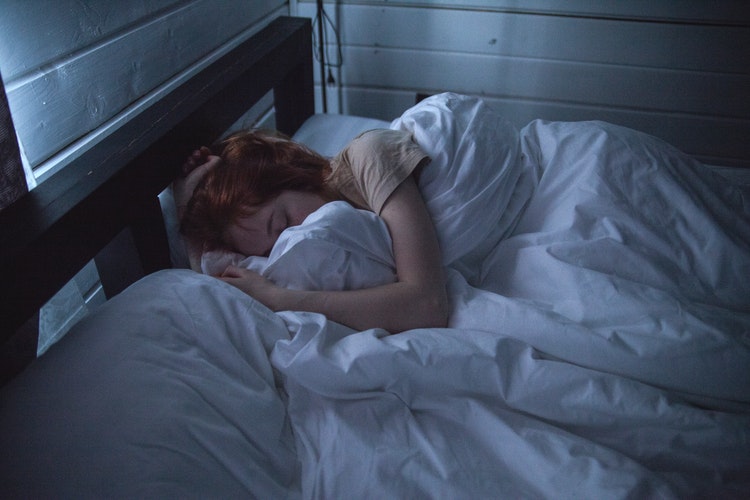By Selena Thomas
Can you imagine sleeping for less than four hours per day regularly? If you’re reading this while laying in your bed or early in the morning while procrastinating to start your day, you must be thinking how crazy this idea is. Instead, if you’re a workaholic or if you feel that 24 hours are not enough for all your plans and projects, then you might want to consider polyphasic sleep.
To sleep or not to sleep? We always listen to how important and healthy it is to sleep at least eight hours every night, but could it be that we can function with much less? And does that mean that we are wasting our time sleeping? Polyphasic sleep could be considered as a controversial topic because it comes with a lot of pros and cons, and today, we will try to discuss all of them.
How polyphasic sleep works

Polyphasic sleep is an alternative way of scheduling your sleep time. Instead of sleeping for seven or eight hours in one take, you split it into several short naps. By doing so, you will be able to function with the least possible amount of rest. In a way, this shows how far we can move our boundaries and be productive, but the question is, do we have to be that much more productive? Some people can naturally function with less than seven hours of sleep, but why would anyone else sacrifice their precious sleep time? We all like to snooze a bit more in the morning, don’t we? So imagine what a rollercoaster it would be for your body and brain to switch from monophasic to polyphasic.
The adjustment period can last for weeks, and although there are a few sleep schedules that work like this, they are all based on getting around two to three hours of sleep. It’s safe to say that you will have an extra six hours to your day. If you manage to stick to this schedule for a whole year, you will get around 90 more days than a person who sleeps regularly. Now that is a huge difference and could perhaps be an advantage. Before you rush into this, be aware that many claims about polyphasic rest cycles are a bit questionable. For example, there are claims that many famous people, including Leonardo da Vinci, used to approach this method of sleeping, which is impossible to prove. However, the major concern is how this sleep schedule could impact one’s health, which is something not worth sacrificing with an excuse for productivity.
Types of polyphasic sleep
To show how extreme this is and how short these naps are, we would like to briefly summarize the concepts of a few most known polyphasic schedules:
- The Uberman sleep schedule consists of six to eight naps, and each one lasts for 20 minutes only. Therefore, you will get two to three hours of sleep, which is significantly less than normal and it can be challenging to adapt to it.
- The Dymaxion Cycle also offers you two hours of sleep but they’re divided into 30-minute long naps. You can schedule these naps every six hours, and although this cycle is also extreme, it can work well for short sleepers.
- The Everyman Cycle is a milder version of sleep arrangement and it consists of three and a half hours of core sleep, and
additional three 20-minute long naps. So in total, you get four and a half hours of rest, which is still significantly less than the regular seven to eight hours, but when compared to other schedules, it seems more bearable.
Health risks

Monophasic sleep is known as a restorative sleep during which many vital processes are occurring in our body. While there aren’t enough studies that question the psychological impact of polyphasic sleep, sleep deprivation itself as a primary consequence creates a lot of risks. The minimal bearable amount of sleep for adults is six hours, so sleeping significantly less will eventually cause issues with memory, focusing, and cognitive abilities.
The defense mechanism of our immune system depends a lot on the amount of sleep we get, which means that with less sleep, we will be more prone to various inflammations, viruses, diseases, etc. Lack of sleep will also increase the risk of cardiovascular diseases, diabetes, cognitive impairment, obesity, and hyperglycemia. Younger adults are a particularly sensitive age group and they can experience hormonal imbalance.
Alternative solution
Although sleeping
The length of the nap may vary, but it is usually around an hour, which adds up to six hours of sleep from the previous night. You can optimize the length of the nap and overnight sleep to find the combination that suits you. So with this, you will manage to achieve the optimal amount of sleep, while sleeping less during the night, and indulging into a power nap during the day to boost your energy.
Can we cheat sleep?
Maybe we can cheat sleep for a while, but sooner or later, it will hit us back like a boomerang. The hit of that boomerang is going to leave a mark and may have some serious long-term consequences. Before jumping onto this wagon, take a
Author Bio: Selena Thomas is a content writer who loves sharing tips on healthy lifestyles. A writer by day and a reader by night, she’s fond of writing articles that can help people in improving both physical and mental health. She also loves traveling and inspires people on her blogs.



